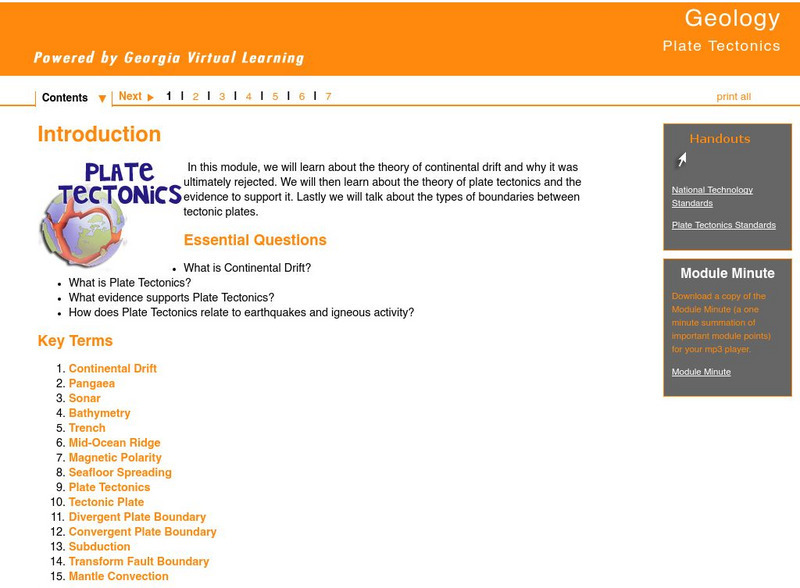NOAA
Watching in 3D
Bring the ocean floor to life! Earth science scholars discover the process of deep sea mapping in the third installment in a series of five lessons about ocean exploration. The teacher's guide includes helpful resources, worksheets, and...
NOAA
Mapping the Deep-Ocean Floor
How do you create a map of the ocean floor without getting wet? Middle school oceanographers discover the process of bathymetric mapping in the third installment in a five-part series of lessons designed for seventh and eighth graders....
Curated OER
TE Lesson: Habitat Mapping
Students examine the current technologies used in mapping resources in the marine environment. They look at remote sensing, sounding, and underwater vehicles. They examine image from the benthic habitat produced by the GIS in order to...
Alabama Learning Exchange (ALEX)
Sonar Mapping of the Ocean Floor
Eighth graders participate in an experiment that emulates a sonar signal bouncing off the ocean floor. They determine how the ocean floor is measured by the length of time it takes for the sonar signal to return. They work with a wooden...
Curated OER
Seeing Sound and Sonar
Learners grasp how underwater animals can "see" using sound waves. They practice making inferences, and build a conceptual understanding of sonar radar.
Georgia State University
Georgia State University: Hyper Physics: The Physics of Loudspeakers
This college-level physics course on acoustics provides a variety of charts and short descriptions of the physics involved in using loudspeakers and audio equipment. Related links.
Georgia Department of Education
Ga Virtual Learning: Plate Tectonics
In this interactive tutorial you will learn about the theory of continental drift and why it was ultimately rejected. Then learn about the theory of plate tectonics and the evidence to support it. Lastly discover the types of boundaries...








